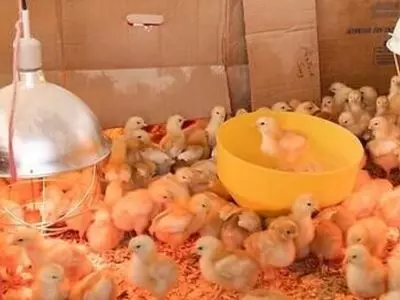No products in the cart.
Chicken
How Many Chickens Should I Get for Eggs? – TIPS
“How many chickens should I get?” is a question we hear pretty often.
You’ll need to figure out how many eggs you go through in a week. Typically, 2 chickens can produce about 1 dozen eggs in a single week. Multiply each dozen of eggs you use weekly by 2 to find the number of chickens you need.
That said, it’s not as simple as just buying a few chicks and putting them in your backyard; there are a lot of factors to consider to make sure your flock thrives.
This post will cover everything you need to consider before adding chickens to your home!
*This post may have affiliate links, which means I may receive commissions if you choose to purchase through links I provide (at no extra cost to you). As an Amazon Associate I earn from qualifying purchases. Please read my disclaimer for additional details.
How Many Chickens Should You Get?
Chickens are a great way to have fresh eggs in your home, but figuring out how many chickens you should get to produce the right amount of eggs can be difficult.
Here are a few factors to consider when choosing how many chickens you should get:
- How many people live in your home
- How many eggs you use in a week
- What breed of chicken will you get/how many eggs they produce a week
On average, 2 chickens can produce about 12 eggs per week (or 5-6/week per chicken).
As mentioned in the intro, multiply each dozen of eggs by 2 to find the chickens needed.
Here’s a table showing the number of chickens you’ll need based on these factors once you figure out how many eggs you go through in a week.
| Eggs | Number of Chickens |
|---|---|
| Half Dozen | 1-2 Chickens |
| 1 Dozen | 2 Chickens |
| 18 Eggs | 4 Chickens |
| 2 Dozen Eggs | 5 Chickens |
| 32 Eggs | 7 Chickens |
Considerations Before Buying Chickens

Here’s a list of things to consider when it comes to choosing how many chickens you want to get:
- The amount of space you have available
- How much time you have to dedicate to chickens
- Your reason for getting chickens
- Your feeding/watering/caring ability
- Your budget
How much space do you have? Chickens need about 4 square feet per chicken inside the coop and 10-12 square feet per chicken in an outdoor run.
How much time are you willing to spend caring for your chickens?
Chickens need to be fed and watered daily, and their living quarters should be cleaned weekly.
Egg production will also slow during the molting season, and when the days grow shorter in winter, you may need to supplement your flock’s diet with extra calcium.
What’s your budget? Don’t forget that you’ll need to purchase a coop, feeders, waterers, bedding, and other supplies.
Of course, you’ll need to factor in the feed cost. Generally, you can expect each chicken to eat about 1/4 pound of feed daily.
With all these factors in mind, you should be able to decide how many chickens are the correct number for you.
Here’s a useful video giving you the rundown on owning chickens:
Read More: What to Feed Baby Chickens After Hatching. We cover what you need to know about starter feed and how to make sure your chicks get a balanced diet!
How to Take Care of Your Chickens
Chickens are a great addition to any farm or homestead. They provide delicious eggs and make excellent composters, but they can also be a lot of work.
Here are some tips on how to take care of your chickens:
- Know how many chickens you should get. The rule of thumb is 2 per person, so you’ll need eight chickens if you have a family of 4. However, this number may vary depending on the breed of chicken and how much space you have.
- Build or buy a chicken coop. The cage should be big enough for your chickens to move around freely and have plenty of ventilation.
- Line the coop with straw or other bedding material to absorb waste and keep the chickens warm in winter.
- Chickens need a diet that consists of grain, green vegetables, and vitamins and minerals. You can either buy commercial chicken feed or make your own by mixing grains with greens like kale or spinach. It’s essential to offer your chickens a variety of foods.
- Clean the coop regularly to prevent the spread of disease. Once a week, remove all the bedding material and replace it with fresh straw or hay. Wash the coop with a vinegar solution to kill any bacteria.
By following these simple tips, you can make sure your chickens are healthy and happy.
Read More: How Long Do Roosters Live? This guide gives insight into the lifespan of roosters and chickens!
What to Do With the Eggs

If you’re thinking of getting chickens, you might wonder how many eggs they will lay.
Chickens can lay up to 250 eggs per year, so unless you have a big family or plan to sell their eggs, you might want to start with just a few chickens.
Once you have your chickens, you’ll need to decide what to do with all the eggs they lay.
Here are some ideas for what to do with chicken eggs:
- Give them away to friends, family, or neighbors.
- Sell them at a farmers market or roadside stand.
- Use them in your cooking. Fresh eggs make a delicious breakfast and can also be used in baking.
- Make homemade egg dye and color them for Easter or other holidays.
- Use them in crafts such as making homemade soap or candles.
Read our related article, How Does a Chicken Lay an Egg? If you’re looking to learn about the cycle of egg-making, this guide is all about hens!
Fun Facts About Chickens
Here are some fun facts about chickens that you may not know:
- Chickens are omnivores, which means they will eat just about anything. This includes insects, small mammals, and even other birds.
- Chickens have excellent eyesight and can see ultraviolet light. It allows them to spot predators from a distance.
- Chickens are social animals and need to be around other chickens to be happy. It is recommended that you have at least 2 chickens in your flock.
- Chickens are great recyclers. They will eat scraps from your kitchen, as well as weeds and other plants from your garden.
Read More: Can Chickens Eat Buttered Popcorn? If you’re thinking of tossing leftover popcorn to the chickens, read this article first!
List of Chicken-Friendly Plants

Chickens are a great addition to any backyard farm. Not only do they provide delicious eggs, but they also help keep pests under control.
Before you bring home your first flock, it’s essential to research which plants are best for chicken-keeping.
Read More: Do chickens eat rocks? If chickens eat rocks, there’s got to be a reason for it. Learn all about it here!
Here are a few chicken-friendly plants to get you started:
Flowers
Chickens love to peck at colorful flowers, and they can help add beauty to your yard.
Some of the best flowers for chickens include:
- Zinnias
- Impatiens
- Petunias
Fruits and Vegetables
Chickens enjoy eating fresh fruits and vegetables, which can be a great supplement to their diet.
Some of the best options include:
- Leafy greens
- Peas
- Melons
Read More: Can Chickens Eat Bread Crumbs? See if chickens can eat bread, crust, and bread with mold (plus the best ways to feed it to them) here!
Herbs
Herbs are not only good for chickens, but they can also help deter pests.
The following herbs are all excellent choices for your chicken coop:
- Basil
- Oregano
- and Mint
Read our related article on Everything You Need to Know About Chicken Eggs! We discuss incubation, fertilization, collecting eggs, and raising a flock in this guide!
Final Thoughts
So, how many chickens should you get?
Well, that depends on a lot of factors from your budget, how many chickens you need to provide what you need, and also things such as the space you have available to house them.
Once you figure this out, you’ll be able to decide better how many chickens to get.
Whatever you decide, we hope this article has helped equip you with the information you need to make an informed choice!
